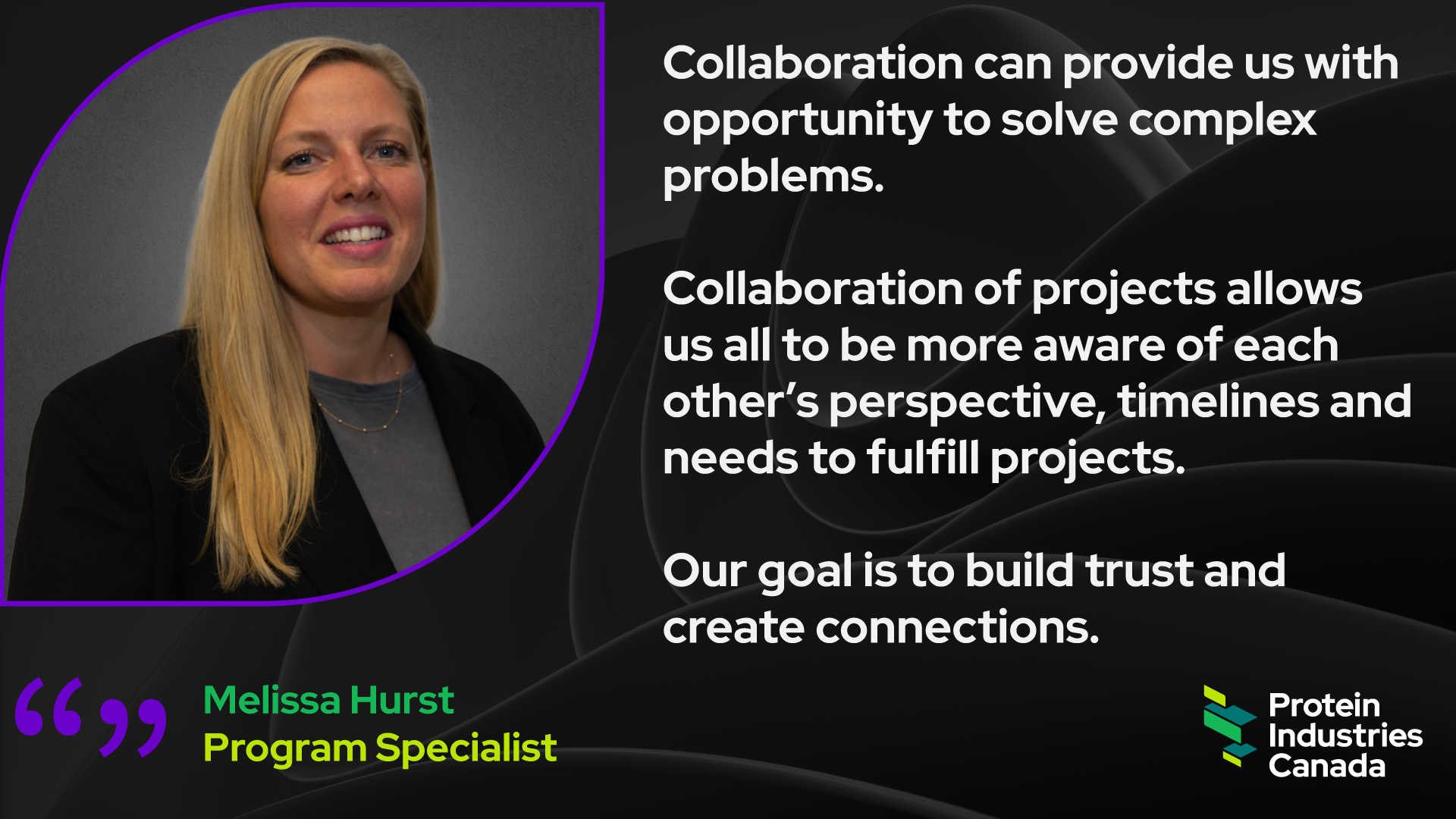Collaboration key to Protein Industries Canada project success
- Posted:
- Category:
- PIC Behind the Scenes

One of the base elements of a Protein Industries Canada project is collaboration. But often, when in discussions with a company looking to take part in the cluster’s programing, one of the first questions asked is, “Why collaboration?”
For Protein Industries Canada staff, the answer comes down to a number of benefits for each of the companies involved in the project and Canada’s plant-based ecosystem as a whole.
“Collaboration can provide us with opportunity to solve complex problems,” Protein Industries Canada Program Specialist Melissa Hurst said. “Collaboration of projects allows us all to be more aware of each other’s perspective, timelines and needs to fulfill projects. Our goal is to build trust and create connections.”
At the same time, partnered companies have the opportunity to learn from each other, or to access technology that may otherwise take them years to access. This is true whether the companies involved are SMEs or multi-national brands; in fact, according to Protein Industries Canada Program Specialist David Stirling, it’s rare that a company of any size doesn’t come away from a partnership without having seen some form of benefit.
“We’ve got some projects that involve some small organizations that have decided to collaborate with some larger organizations, and that’s been very, very beneficial for the small organizations in the fact that they’ve had great ideas but not the resources to really scale up or innovate past that, and having those relationships and collaborations with the large organizations helps them achieve their goals,” he said. “From the large organization’s point of view, they then have access to new, innovative technologies and processes that they didn’t have to spend as much time or resources on.”
Throughout its first round of funding, Protein Industries Canada saw a wide variety of partnerships, ranging from ingredient processors and food manufacturers, to technology developers and academics, to crop breeders and ingredient formulators. One of the most valuable types of consortiums to the ecosystem, however, is one that takes a full value chain approach.
In their organization’s second round of funding, both Stirling and Hurst are hoping to see consortiums take their partnerships and work a step further. For Stirling’s part, he hopes to see consortiums truly embrace the full value chain mindset, wherein they bring everyone from farmers through to retailers into the fold. Hurst, meanwhile, is hoping consortiums bring in partners who can help propel their work forward.
“I would ask people to not look for the perfect replication of a product but to encourage an appetite for plant-based eating,” she said. “It’s going to take hard work and perseverance, but Protein Industries Canada is part of the federal government’s Global Innovation Clusters, trying to accelerate bold new ideas. Challenges in life make us stronger and our industry is poised to be there.”
The first step in that hard work is finding the right partners to work with. It’s not a step to get too hung up on if a company doesn’t already have its partners in mind, however, as Protein Industries Canada’s staff can help bridge a gap that may be present.
“We make introductions and arrange meetings with people we think would be a good fit or would have interest in meeting with each other to help each other achieve their goals,” Stirling said. “And with the team being so far-reaching across Canada, we have a very wide network that we can draw on to make those connections and really foster those collaborations.”
Collaboration has remained a key element in Protein Industries Canada’s programing, from the start of its first round of funding through to the launch of its second. For more information about how your company and your potential partners can get involved in a Protein Industries Canada project, visit our Technology Program page.
